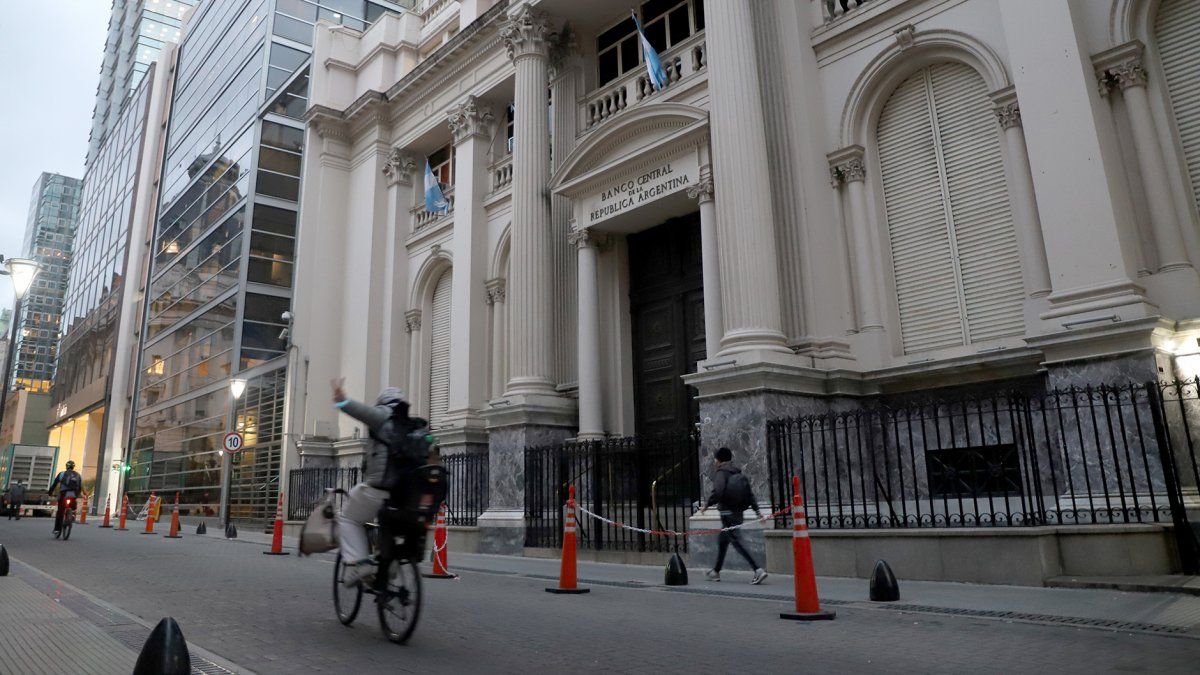Within the framework of the problem of accumulating reserves that the Central Bank (BCRA), resolved to apply a series of restrictions on access to the dollar for the payment of debts in that currency of provinces and municipalities through an extension of the criteria currently in force for the payment of Negotiable Obligations (ON) in foreign currency issued by companies.
Although they understand that this is a temporary situation that is beginning to be overcome, the BCRA has been working to reduce the negative impact of drought in the level of economic activity, given that, according to preliminary estimates, the drop in exports from the agricultural complex will be around US$ 19,500 million this year.
In that sense, as he had confirmed Ambit this Thursday morning with sources close to the BCRA, the financial regulator will require, as of June 2, the provinces and municipalities to cancel 60% of their debts in foreign currency with their own dollars and will be able to access the official exchange market only to cancel the remaining 40%.
What problem does the BCRA measure want to solve?
“This is because the provinces were financed through the official market (MULC) and they did not want to touch their holdings in dollars, which they have in many cases”, says a source consulted by this medium. Until now, the BCRA had not established any restriction for the provinces in this complex contextwhere exports fell 25% and, as explained by a voice close to the Government, “while the activity is defended throughout the country, now, the governors are being asked to make an effort” (with the measure that is implemented this Thursday).
As this medium was able to learn, the global debt involved is US$460 million, which is the amount of capital that matures in the second half of the year. In the first semester they paid US$315 million in capital. That is What is requested to refinance is 60% of US$460 million, which is equivalent to US$276 million.
And it is that, as the economist expert in public finances Rafael Flores explains, “the current exchange gap is very wide and encourages all public or private agents that have access to the official market to borrow in dollars and pay through the single free exchange rate (MULC) at a much lower price of $245 per currency.”
Warns that the exchange rate gap distorts the economy and that, in a context as complex as the current one, it is understandable that the BCRA has negative net reserves, it is understandable that it seeks a way to get rid of the least amount of dollars possible at the official value and that is what this idea points to. “The issue is that there are no dollars to meet all that is demanded.
A complex moment to go through
The BCRA estimates indicate that the trade balance for 2024 already shows a projection of surplus in the order of US$13.900 million to US$16.800 million, with a conservative estimate of GDP growth of 2%. Bearing in mind that Argentina’s trade balance of goods had a surplus of US$12,353 million in 2022 and that a floor of US$14,000 million is expected in 2024, the activity of the BCRA tended to regulate the demand for currency from this year in order to prevent a temporary and punctual situation, such as drought, from negatively affecting the growth process. As it happened, it advanced with different sectors, but the provinces had been left out of that strategy until now and, now, it was decided to include them.
The problem, for Flores, is that everything this is part of an exchange control scaffolding that is becoming more and more complex and that, as Flores warns, gives the idea that the Central has serious problems with the reserves. Thus, he believes that what happens is that “the government decided not to try to resolve the exchange issue.”
This generates nervousness and a greater presence of fears that a currency run, in an electoral context, could make the monetary regulator very complicated. And he considers that the great challenge is that the Government can meet the demand for dollars from the economy.
Source: Ambito




